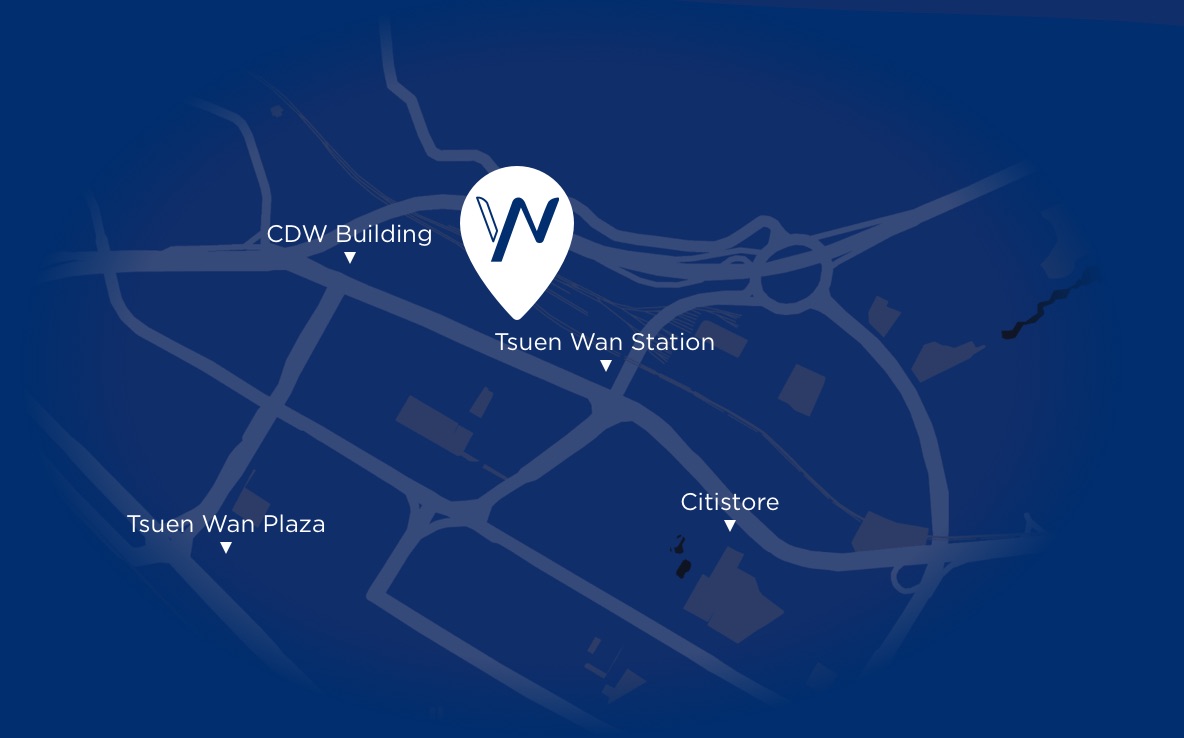Hong Kong in 2025 remains one of the best cities to host an offshore LLC despite economic and geopolitical turbulence. With its strategic location and pro-business environment, setting up an LLC in the territory is as attractive as it ever was.
In this article, we’ll outline the pros and cons of starting your offshore LLC in Hong Kong and why you should consider establishing a foothold here.
The Pros
Strategic location in Asia
Located at the crossroads between East Asia and South-east Asia, you can fly to most major cities in these regions from Hong Kong in under 6 hours at reasonable cost. This gives you face-to-face access to markets in Japan, Korea, Indonesia, China, Thailand, and Singapore, etc.
Getting through Hong Kong immigration is also a very straightforward process with visa-free entry for 170 countries of varying periods of between 7 and 180 days.
Famously known as the gateway between east and west, Hong Kong’s official languages are Cantonese, Mandarin, and English. Combined with a relatively western lifestyle, just about anyone who can read and converse in English can navigate and live in Hong Kong without having to learn the Chinese language. This has also earned Hong Kong a reputation among the west of being the beginner’s entry to Asia, where you can slowly immerse yourself in the culture without being overwhelmed.
A Pro-business tax environment
Known globally as a tax haven, Hong Kong’s low tax environment is very enticing to investors looking to invest in Asian assets, whether it means setting up an offshore office or getting involved in the local property market.
Corporate profits taxes for profits generated in Hong Kong are calculated on a two-tiered rate at:
- 8.25% for assessable profits for the first 2 million HKD, and
- 16.5% for profits over 2 million HKD
This is not to be confused with for profits generated outside the territory, which may not be taxed if a successful offshore claim is made. Applicable cases include:
- Contracts of purchase signed and sales made where traveling outside Hong Kong is necessary
- Any part of the profits that relates to the manufacturing of goods outside of Hong Kong
- Services performed outside of Hong Kong by a business in Hong Kong
The IRD will consider each scenario and rule on the legitimacy of the offshore claim based on where all of the activities that generated the profits took place.
Salaries taxes in the mean time range from 2 to 17% of assessable incomes, with additional benefits and reimbursements that could reduce assessable incomes.
Finally, property taxes are set at 15% of the net assessable value of the property in addition to the stipulation applied on October 23, 2023 that lowers the tax for non-Hong Kong Permanent Residents purchasing a second property to 7.5%.
There are no import taxes on all but a few categories like tobacco, liquor, oil, and methyl alcohol.
| Tax Type | Rate/Description |
| Corporate Tax | Two-tiered system: 8.25% on the first HK$2,000,000 of assessable profits; 16.5% on profits over HK$2,000,000 |
| Salaries Tax | Progressive rates from 2-17% of assessable income |
| Property Tax | 15% of net assessable value of the property; In addition: 7.5% for non-permanent residents purchasing a second property |
| Import Taxes | None except for select items (tobacco, liquor, hydrocarbon oil, methyl alcohol) |
| Offshore Profits Tax | None if profits sourced outside Hong Kong* and a successful offshore claim is lodged |
World-class infrastructure
With its population of over 7 million in an area just slightly larger than the city of Atlanta Georgia, highly efficient infrastructure was necessary to keep Hong Kong running with minimal bottle-necks. This is reflected in its transportation system, logistics system, and mobile networks.
Hong Kong airport, which ranked 6th best in the world as of 2025, is a highly efficient operation with multiple methods to access the rest of Hong Kong. Traveling from the airport to the Central business district takes just 22 minutes via the Airport Express subway line, with more modes of transport such as express buses and queues of taxis frequently available to take you anywhere in Hong Kong. There is also a direct ferry to Macau or to Shenzhen, saving valuable travel time. Combined with overlapping networks of mini-buses, trams, and the subway system, getting just about anywhere in Hong Kong will usually take less than an hour.
Aside from moving people, Hong Kong’s logistics infrastructure is also impressive, whether the cargo is a letter or a crate, or traveling local, international, or cross-border. Hong Kong’s competitive logistics industry caters to clients of all sizes and budgets, with speed that ensures that your package will reach you from a travel hub within a day or so.
The speed of information is also just as important as physical goods and people. 5G internet is available to over 98% of Hong Kong households through several internet providers that ensure reasonable and very affordable prices. With coverage of over 90% of the territory, you will be hard-pressed to completely lose internet signals, even in underground spaces like subway lines and parking lots.
An independent legal system
Hong Kong’s independent legal system is based on common law principles familiar to visitors from western countries. Alongside its strong anti-corruption system headed by a dedicated anti-corruption government branch, makes Hong Kong a very stable legal environment to establish a business in.
Despite the territory technically belonging to China, the legal system operates in a bubble, completely independent from the Chinese system. This means that Hong Kong laws broken in Hong Kong will only be dealt with within Hong Kong’s jurisdiction, and any disputes between a mainland company and a Hong Kong LLC will be dealt with in Hong Kong courts.
Contracts are enforced and IPs are strictly monitored by the Hong Kong government, resulting in the open, transparent business environment companies have thrived on for decades.
Ease of registering and setting up a Hong Kong LLC
Incorporating a business in Hong Kong is a straightforward affair that can be completed as quickly as 2 business days. With no restrictions on residency or the citizenship of the directors and shareholders, just about anyone can set up a Hong Kong LLC without even setting foot in the territory.
Startups looking to establish an office in Hong Kong can approach one of its many science and technology parks for office space and financial support, particularly in the fields of biotechnology and AI. These spaces were developed specifically to accommodate startups and young companies with small budgets, and offer ways to give them a boost in the form of funding opportunities and expos to showcase their products and services.
The Cons
High residential costs
It’s no secret Hong Kong is one of the most expensive property markets in the world to rent or purchase, surpassed only by New York as of 2023. Because of its low taxes, the government relies heavily on expensive land sales to fill its coffers, which gets passed on to developers, trickling down to the property owners themselves. Coupled with the proliferation of house flippers, apartments of ever shrinking sizes continue to be expensive to buy.
Yet despite the residential situation, most other costs of living are manageable and is how most Hong Kong residents balance out their expenses.
Tight Space
Compared to the wide open spaces that most Americans have grown up with, Hong Kong may come across as claustrophobic to the inexperienced, as a result of its large population and small developed land area. Rubbing shoulders on the streets or in the subway is a normality, and personal space is almost a luxury. Thankfully, there are areas of Hong Kong that are less crowded, if a little further away from the city centers. Recent trends have seen expats move to the quieter parts of the city without sacrificing much in the way of travel time thanks to the city’s efficient transport system.
Small local market (for certain industries)
While Hong Kong is a great place to act as a base of operations for the Asia Pacific region, certain industries, particularly B2B, may find Hong Kong to be too small of a market to scale up. Hong Kong’s small land footprint means that consumers have less space to store their things, and tend to spend more on perishables such as food and drink, or highly compact items like watches, jewelry and bags. Hong Kong residents are also notably spending more time and money on their northern neighbor of Shenzhen, where their money can be stretched much farther and with much greater returns of value.
Tedious bank opening procedures for foreign owners
While incorporating a business in Hong Kong is an easy procedure, opening a business bank account is a much more tedious and involved affair. Banks in Hong Kong follow a very strict KYC (Know-Your-Customer) procedure of due diligence, meaning that other than having to prepare certified true copies of your business registration and personal documents, as well as a check for the minimum initial deposit and application fee. The good news is that the major banks in Hong Kong are beginning to offer virtual verification processes that allow foreign directors and shareholders to open a bank account remotely, bypassing the need to set foot in the territory entirely to establish a company.

Summary
Despite its issues with opening bank accounts and notoriously high property costs, Hong Kong is still a solid location to take your first steps into conquering the Asian markets. With its world-class infrastructure, pro-business tax environment and strong legal protections for businesses, the Gateway to Asia remains true to its name. If you’ve got any other questions about starting a business in Hong Kong that we haven’t answered here, get in touch with us and we’ll gladly clear up any confusion for you!










